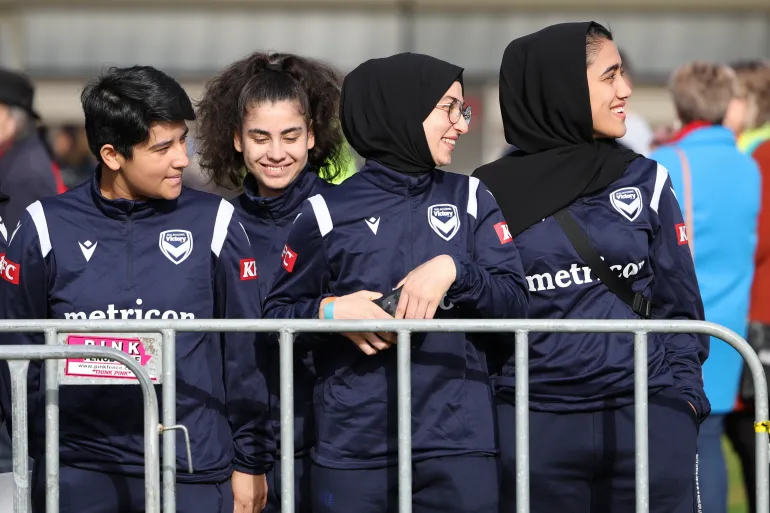When the Taliban banned women from sport in 2021, they didn’t just dismantle a football team — they tried to erase a generation of women who dared to be visible. But erasure only works if the world forgets. And four years later, these women have refused to be forgotten.
Last week, FIFA announced the formation of the Afghan Women’s Refugee Team, a 23-player squad drawn from communities across Australia, the United Kingdom, Portugal, and Italy. Later this month, they will step onto a pitch in Dubai for the FIFA Unites: Women’s Series. It won’t just be a match. It will be an act of defiance broadcast to the world.

Football as Resistance
Every time these women lace up their boots, they are defying one of the world’s most extreme regimes. The Taliban’s ban on women’s sport was never about religion or morality — it was about power. It was about silencing women, erasing their bodies from public life, and re-establishing total control.
This team is a direct rejection of that control. It exists because the players refused to surrender their right to move, to compete, to be seen.
“We have been screaming out loud. We have been knocking on every closed door to get FIFA’s attention, to listen to our voices, to hear us.” — Khalida Popal, former Afghanistan women’s team captain, CNN Sport.
Goalkeeper Fatima Safdari put it bluntly:
“The Taliban took my dream away and I’m just hungry to play. It’s just football — let us play. Let us represent our country.” — CNN Sport
Their plea shouldn’t still need repeating in 2025. Yet here we are — still debating whether Afghan women have the right to exist in sport.
More Than a Game
When the team walks out in Dubai between October 23 and 29, facing sides from the UAE, Libya, and Chad, they won’t just represent displaced athletes. They’ll represent every Afghan woman forced to choose between safety and selfhood.
Their jerseys will bear Afghanistan’s pre-2021 colors — red, black, and green — but their official status will be “refugee.” Stateless. Unclaimed. The irony is sharp: a team exiled from its own country because its government refuses to acknowledge women’s humanity.
“We are not playing for a government. We are playing for our people — for Afghan women everywhere.” — Afghan Women’s Refugee Team midfielder.
FIFA calls it a “special initiative.” Let’s be honest — it’s a moral necessity.
The Politics of Recognition
The Afghan Women’s Refugee Team cannot yet compete in official qualifiers for the Asian Cup or the World Cup. FIFA says its hands are tied because the Afghanistan Football Federation, now under Taliban influence, doesn’t recognize women’s sport.
This bureaucratic stalemate is intolerable. Afghan men can compete internationally under Taliban approval, yet women — the very people who most need a platform — are sidelined by the same institutions that claim to champion equality.
Human Rights Watch has documented how Taliban policies have “deprived Afghan women of livelihoods and identity,” effectively erasing them from public life — which is why visibility itself becomes a radical act.
Sport Is Political, Whether FIFA Admits It or Not
There’s a persistent myth that sport should remain apolitical. Tell that to a woman who risks imprisonment for touching a football. The Afghan refugee team exposes that hypocrisy. Sport has always been political — especially when it’s used to silence, or to fight back against silence.
These women are exiles, yet their presence on a field in Dubai will echo louder than any anthem. They are not simply athletes — they are activists in motion, their every sprint and tackle a statement that the Taliban’s rule cannot define Afghan identity.
A Call to the World
The world cannot applaud these women for their courage and then turn away. Global sport owes them more than symbolic gestures. It owes them structure, funding, protection, and a pathway to real competition.
So when these women take the pitch, they are not just chasing a ball. They are reclaiming space in a world that tried to erase them.
“Football is our protest.” — Khalida Popal.
Every minute they play, they remind the world that oppression thrives on invisibility — and that to be seen is to resist.
Afghanistan’s women have been silenced, sidelined, and erased. Yet through football — through sheer persistence — they’ve created a stage that no regime can control. When they step onto the pitch in Dubai this October, they will reclaim something the Taliban can never confiscate: their freedom.



